
Node.js is a JavaScript runtime built on Chrome's V8 JavaScript engine.
How to install
With installer
brew install node
What Node.js can do?
- Web servers
- Development tooling
- Desktop apps
- Command line tools
- etc
Main concepts &
API Reference
console.log(global);
global.setTimeout(() => console.log('timeout'));
setTimeout(() => console.log('timeout'));
process // current process methods/properties
__filename // absolute path to current file
__dirname // absolute path to directory where the file is located
require() // module resolver
const redux = require('redux'); // import redux from 'redux';
module
exports
module.exports === exports;
ECMAScript modules (es6) status in Node is still experimental due to different implementation compare to commonJS.
Right now ECMAScript modules could be used with babel or natively with experimental flag
npm install babel-cli babel-preset-env
babel-node index.js# .babelrc
{
"presets": [
"env",
]
}node --experimental-modules my-app.mjsECMAScript modules should have .mjs extension
EventEmitter is the most important class in NodeJs which helps to use event-driven model. It used widely by both internal and external modules
Node.js core API is based on asynchronous event-driven architecture in which certain kind of objects called emitters periodically emit events that cause listener objects to be called.
const { EventEmitter } = require('events');
const emitter = new EventEmitter();
function someEventListener(...args) {
console.log('some event: ', ...args)
}
emitter.on('SOME_EVENT', someEventListener);
emitter.emit('SOME_EVENT', 'some', 'arguments');
emitter.removeListener('SOME_EVENT', someEventListener);
emitter.emit('SOME_EVENT', 'some', 'arguments');
-
uncaughtException
-
unhandledRejection
- exit
- beforeExit
const { EventEmitter } = require('events');
console.log(process instanceof EventEmitter); // trueprocess.on('uncaughtException', (err) => {
console.log(err);
console.log('caught!');
});
throw 'ERRRRRRRROR!'
process.on('unhandledRejection', (err) => {
console.log(err);
console.log('Did you forget to attach a catch handler for your promise?')
});
Promise.reject();process.on('beforeExit', () => {
console.log('Let me exit pls');
setTimeout(() => {
console.log('nope');
}, 0);
});process.on('exit', () => {
console.log('Process is about to exit!');
})
const start = Date.now();
while (Date.now() - start < 1000) {
;
}Most asynchronous methods exposed by the Node.js core API follow an idiomatic pattern referred to as an error-first callback. With this pattern, a callback function is passed to the method as an argument. When the operation either completes or an error is raised, the callback function is called with the Error object (if any) passed as the first argument. If no error was raised, the first argument will be passed as null.
function errorFirstCallback(err, data) {
if (err) {
console.error('There was an error', err);
return;
}
console.log(data);
}Built-in modules
The Node.js file system module allows you to work with the file system on your computer.
const fs = require('fs');
const path = require('path');
fs.readFile(__filename, 'utf-8', (err, file) => {
if (err) {
console.log('error: ', err);
return
}
console.log(file);
});
const file = fs.readFileSync(__filename, 'utf-8');
console.log(file);
fs.writeFile(path.join(__dirname, './1.txt'), 'Hello\nWorld\n!', (err) => {
if (err) {
console.log('error: ', err);
return
}
console.log('done!');
});
fs.readdir(__dirname, (err, dir) => {
console.log(dir);
});node.js process
input data stream
output data stream
Streams are collections of data — just like arrays or strings. The difference is that streams might not be available all at once, and they don’t have to fit in memory. This makes streams really powerful when working with large amounts of data, or data that’s coming from an external source one chunk at a time.
const stream = require('stream');
class MyWritableStream extends stream.Writable {};
class MyTransformStream extends stream.Transform {};
const fs = require('fs');
const writable = fs.createWriteStream(__filename);
const readable = fs.createReadStream(__filename);Stream could be:
- Readable (fs, net, http, stdin)
- Writable (fs, net, http, stdout)
- Transform (zlib, crypto)
- Duplex (net)
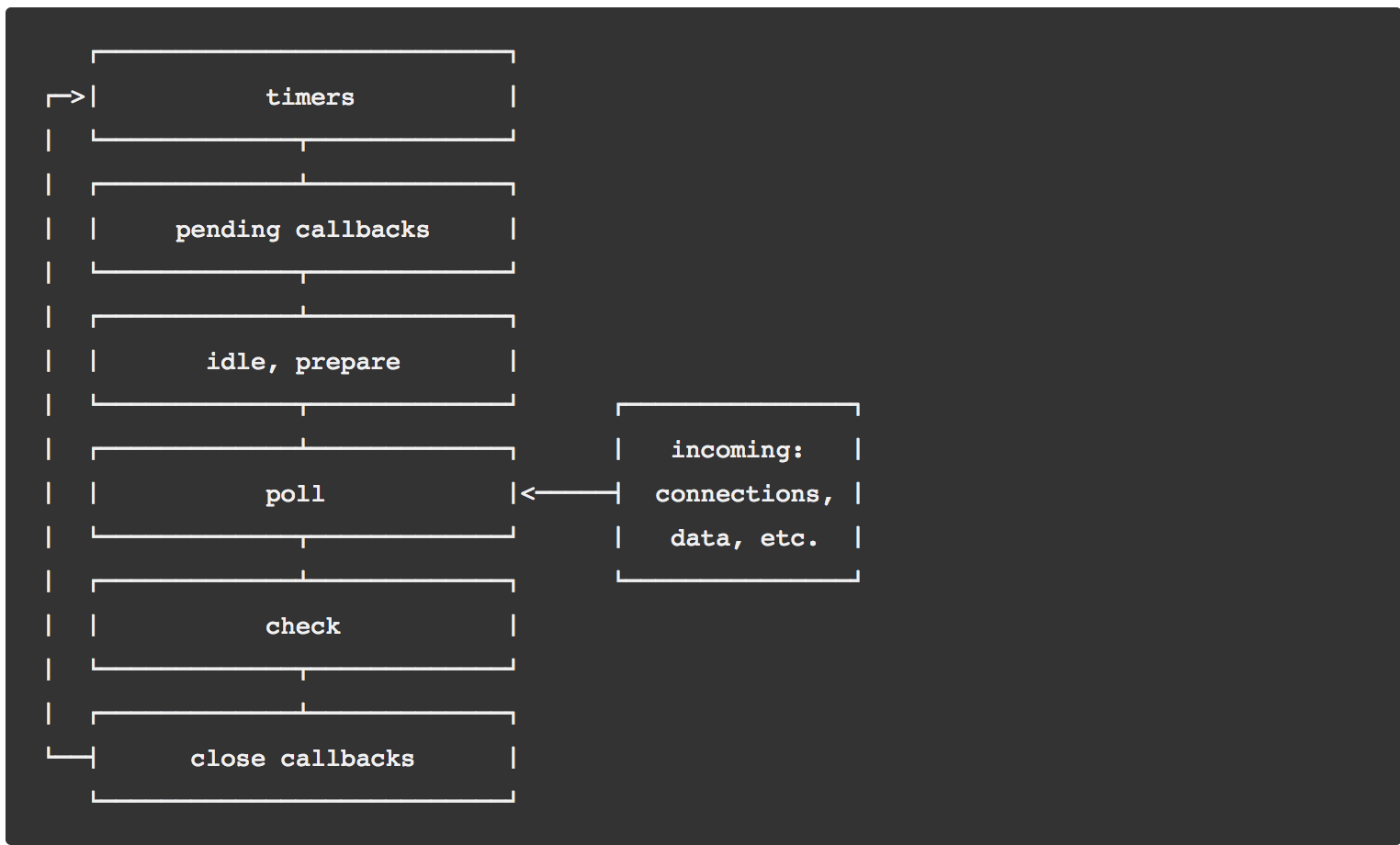
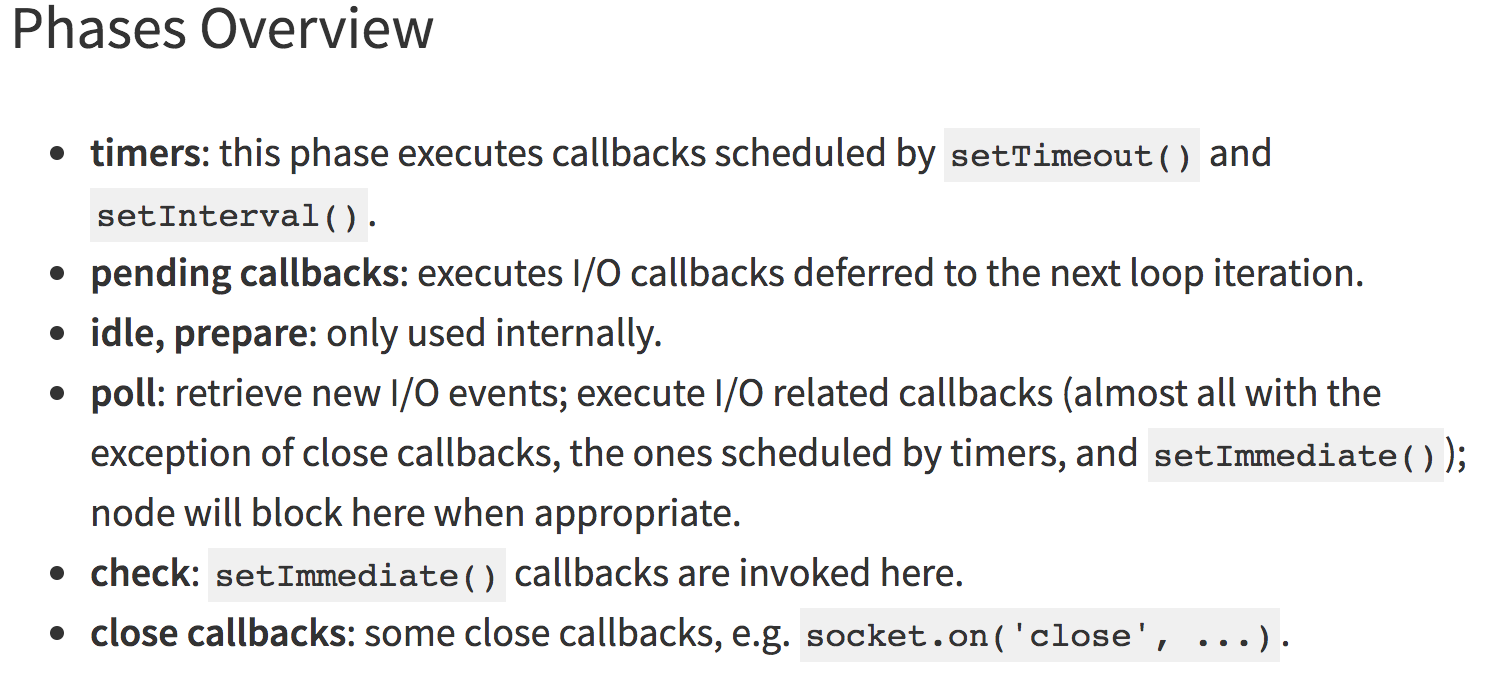
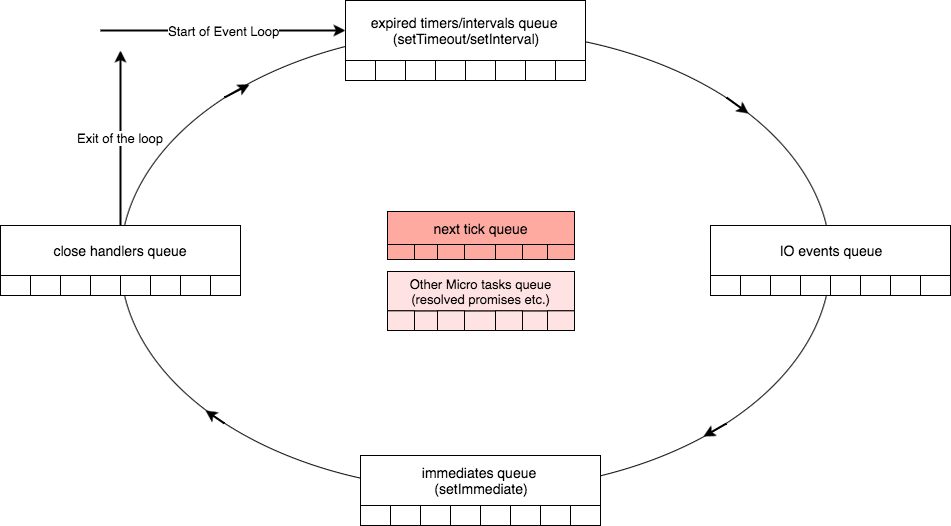
Schedules the "immediate" execution of the callback after I/O events' callbacks.
setTimeout(() => console.log('timeout'), 4);
setImmediate(() => console.log('immediate'));
console.log('sync');
// outputs "sync" then "immediate" then "timeout";The process.nextTick() method adds the callback to the "next tick queue". Once the current turn of the event loop turn runs to completion, all callbacks currently in the next tick queue will be called.
console.log('sync');
setTimeout(() => console.log('timeout'), 4);
setImmediate(() => console.log('immediate'));
process.nextTick(() => console.log('next tick'));
// outputs "sync" then "next tick" then "immediate" then "timeout"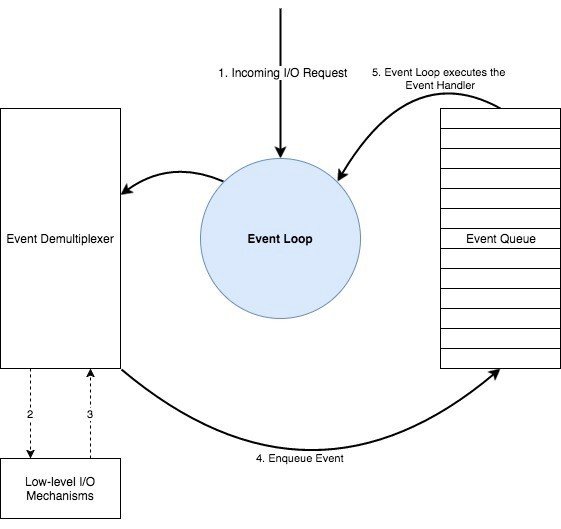
EventLoop and the big picture (original resource)
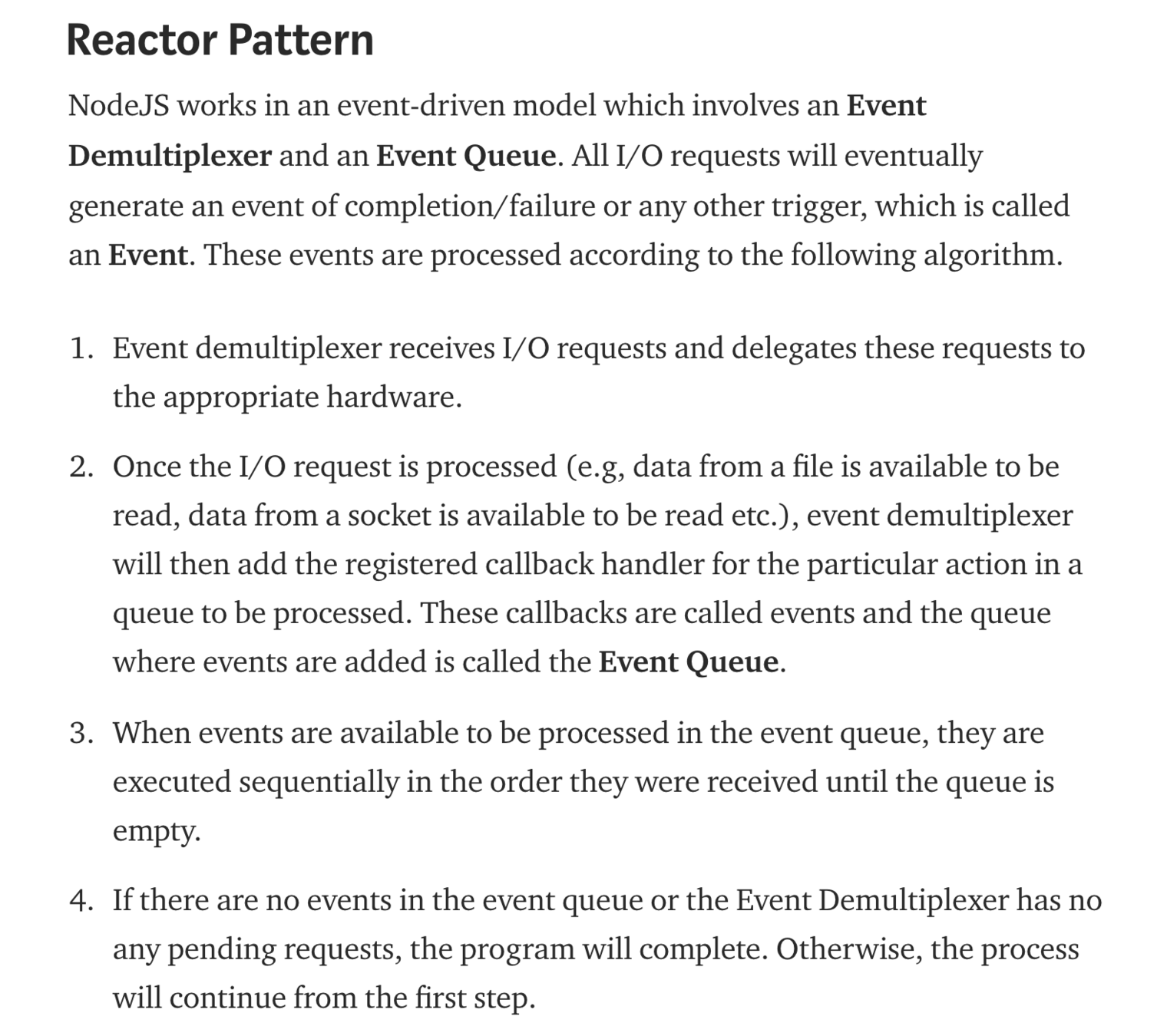
EventLoop and the big picture (original resource)
This entire process is governed by libuv

libuv is cross-platform support library which was originally written for NodeJS. It’s designed around the event-driven asynchronous I/O model.
The library provides much more than a simple abstraction over different I/O polling mechanisms: ‘handles’ and ‘streams’ provide a high level abstraction for sockets and other entities; cross-platform file I/O and threading functionality is also provided, amongst other things.
Nodejs introduction
By Nikita Rudy
Nodejs introduction
- 689



